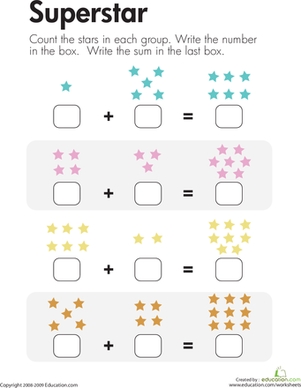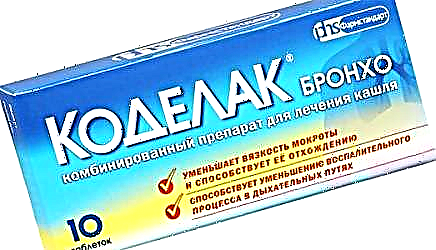When a child is sick, this is always a cause for concern for parents. It is especially scary if vomiting occurs in children under one year old, because this condition quickly leads to dehydration. The contents of vomit can be different: undigested food, blood, bile, or mucus. Depending on this, the causes of the disorder may be different.

If a child vomits, there can be many reasons
Most often, this unpleasant condition occurs in children, starting from three months. Possible complications:
- Accession of infection;
- Dehydration of the body;
- Lethargy of the child;
- Increased or, conversely, decreased body temperature.
Sometimes nausea goes away on its own without requiring treatment. However, more often other unpleasant symptoms join it.
Common causes
A child's vomiting of mucus is usually caused by an upset stomach or intestines. Also among the possible, the most likely cause is rotavirus infection. Less commonly, vomiting occurs as a consequence of an acute respiratory infection. Another reason is food poisoning.

Stomach upset often occurs due to improper feeding
Causes of clear vomiting
Vomiting of sputum in a child often occurs with acute respiratory diseases. For a child, transparent vomiting is most often harmless, but requires observation. Also, this condition can be caused by increased intracranial pressure. In this case, a consultation with a pediatric neurologist is necessary.
Attention! If your baby vomits shortly after falling or hitting his head, call a doctor right away. Vomiting often indicates a concussion or other traumatic brain injury.
Causes of vomiting yellow mucus
Vomiting of mucus without fever in a child, in which the general condition of the baby is not disturbed, may indicate the presence of parasites in the child's body: helminths (worms) or lamblia. If a child vomits with yellow mucus mixed with bile, a common cause is the physiological bend of the gallbladder.
Attention! If there is an admixture of blood in the contents of the stomach, vomiting can be caused by stomach bleeding or rupture of internal organs (in case of a fall, injury).
Features of vomiting in infants
Vomiting in an infant is different from vomiting. When spitting up, the state of health of the crumbs does not change, with vomiting it can immediately worsen. You also need to keep in mind the following:
- If the nausea is repeated many times, the child begins to rapidly lose weight;
- Vomiting in combination with diarrhea is a sign that almost certainly indicates the penetration of infection into the child's body;
- If the baby has just vomited, you should refrain from feeding for some time, but water can and should be offered.
Characteristic signs of dehydration may be a sunken fontanel, as well as pallor or cyanosis of the skin, confusion. In this case, urgent action must be taken. The younger the child, the more dangerous it is for him to stay without water for a long time.

Vomiting can be single or repeated several times during the day
When to call a doctor
If the child has vomited mucus, it is advisable to invite a doctor to the house or call an ambulance as soon as possible. It is necessary to attend to this urgently if:
- The baby has a fever for several days, which is difficult or impossible to bring down with modern antipyretic drugs based on ibuprofen or paracetamol for children;
- Disorder of the stool joined the nausea; impurities of blood and mucus are visible in the stool;
- An older child complains of abdominal pain.
The last point is especially important. It is known that any pain in the abdomen can signal an attack of acute appendicitis. Therefore, even if the child complained of pain once and no longer remembers the problem, you should definitely meet with the pediatrician and surgeon.
Sometimes, when vomiting, a high fever is combined with convulsions and loss of consciousness. In this case, if the problem does not appear for the first time, it is necessary to give the baby an anticonvulsant.
If, after a single nausea, the baby feels good, eats and sleeps, you can forget about the problem. Most likely, the nausea was a one-time occurrence that will not happen again. The main thing is to watch the baby, to prevent overfeeding and overheating.
What to do before the doctor arrives
Before the arrival of the doctor, the parents' task is to alleviate the child's condition and at the same time not to erase the picture of the disease, so as not to complicate the pediatrician's diagnosis. This requires:
- Do not give the baby any medicine, especially antibiotics. If you suspect a rotavirus, you can give any antiviral drug, at a body temperature above 38 degrees - an antipyretic;
- Do not overheat your baby, especially in summer. Vomiting and nausea are often caused by heat, due to the fact that infants have imperfect thermoregulation and can easily get overheated;
- Do not feed a baby;
- Provide the baby with plenty of drink from a bottle with a teat or a cup, depending on the age of the baby.
To restore the water-salt balance of the body, it is advisable to use a ready-made glucose solution purchased from a pharmacy. It is sold in powder form and is diluted with water according to the instructions. The child is given a little to drink, in small portions. Glucose rejuvenates well and prevents dangerous dehydration.
If vomiting began after the baby fell and hit his head, before the arrival of doctors, the baby needs strict bed rest at night and during the day, since any sudden movements can provoke dizziness and repeated nausea with mucus secretion. The same rule should be followed if the child has acute abdominal pain.
If it is known that vomiting was caused by eating an allergenic product, you can give the baby an antihistamine at a dosage appropriate for age. It is better to choose the medicine in the form of drops, as they can be easily given to the baby from a spoon. This must be done strictly according to the instructions.
As a rule, the doctor arriving at the child examines the baby's belly, looks at the baby's throat and teeth, listens to the heart and lungs, and checks the fontanel. If there are signs of incipient dehydration, especially if the child refuses to drink, the doctor is likely to suggest hospitalization. You cannot refuse, otherwise you can waste precious time. In a hospital, the baby will be given droppers with a water-saline solution to saturate the body with moisture. If the child becomes ill at night, do not wait until the morning, it is better to immediately call an ambulance. The sooner the cause of the ailment is revealed, the faster you can help the baby.

Do not give your baby any medication before the doctor arrives.
Features of the diet for vomiting
Vomiting is a disorder that is very often caused by dietary deficiencies. Therefore, if the parents organize the right diet for the child, the problem can be avoided. The toddler should only eat what is appropriate for his age. Eating inappropriate for age puts a lot of stress on the pancreas, stomach and intestines. An imperfect, not fully developed digestive tract reacts to this by vomiting.
While the baby is sick, you can offer him the simplest food: crackers or dryers, a cleanly washed apple, mashed potatoes. You should refrain from milk and lactic acid products. It is better to cook porridge in water, for example, oatmeal. For the second, you can give a steam cutlet. Any sweets, fatty and fried foods, as well as all canned food and semi-finished products are prohibited.
At this time, you should not give your baby white or black freshly baked bread, because it can cause fermentation in the stomach. It is better to replace bread with homemade crackers without salt and spices. The baby's soup should be given without sour cream and mayonnaise. All food should be fresh, freshly prepared.
Food should be as soft and pure as possible - hard pieces, getting into the throat, can provoke vomiting again. For the smallest, it is better to give mashed potatoes of industrial production, preheating it in the microwave or in a water bath. If the baby refuses to eat, there is no need to insist - the child's body itself knows when it will need nutrients. As a rule, the child's appetite returns as soon as the negative effects of vomiting pass. This can happen on the second or third day of illness, or, if there is no temperature, even earlier.
How quickly the baby will recover depends largely on the correct drinking regimen. Everything must be done to ensure that the situation does not repeat itself. During vomiting, you should completely exclude from the diet any carbonated drinks, tea, coffee and packaged juices that contain a large amount of sugar. Suitable drinks are still mineral water, cranberry juice, unsweetened dried fruit compote. The main thing is to control that the child, while he is sick with a mucous mass, drinks often, because when the baby is vomited, any liquid well removes toxic substances from the body.
If the baby has vomited, parents should carefully monitor his further condition and well-being. A single vomiting, after which the condition quickly normalizes, is not dangerous for the baby's health. However, if the urge is constantly repeated, and the child is very anxious (or, conversely, becomes lethargic, he may have a stomach ache), this should alert. Most likely, the baby has caught some kind of infection.



